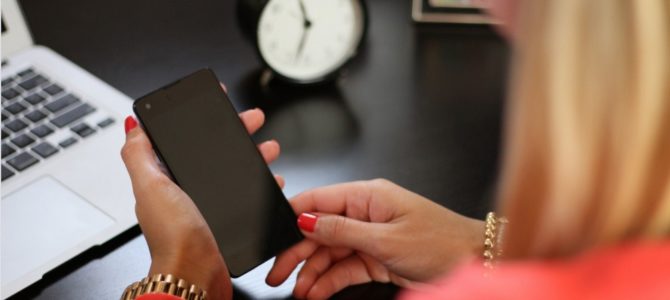
Among the remarkable overreactions to the repeal of net neutrality rules, one of the most bizarre claims asserted that the decision placed LGBT people in harm’s way. I do not pretend to fully understand all the aspects of this topic, but I am certain that how an Internet service provider (ISP) coordinates traffic online is not a threat to me as a gay man. The loudest voice on the LGBT Left came from GLAAD (Gay & Lesbian Alliance Against Defamation), the largest LGBTQ media advocacy organization in the world.
Back in July of this year, they released a call to action titled “Join the Internet-Wide Day of Action to save Net Neutrality,” with this premise: “Without net neutrality, internet censorship that harms the LGBTQ community is not only possible, but inevitable.”
The article quoted, Lucas Grindley, editor in chief of The Advocate, a gay publication: “The Advocate has long benefited from absolutely ‘free’ speech that doesn’t come with a bill owed to the very people we’re protesting. The forces of intolerance are scared by a loud and organized resistance, and now they’re proposing weakening one of the tools it fears most — the internet. Creating an internet for the privileged and another for the rest of us is worse than losing neutrality, it’s about losing equality.”
The article asserted, “ISPs could make it more difficult for users to access political coverage they don’t like, or resources for marginalized groups, like the LGBTQ community” and “we could see network owners charge a premium for community spaces, like chatrooms, message boards, and social networks. This means that LGBTQ teens, or people in isolated areas, who depend on the internet as their primary source of information and community will suffer.” GLAAD listed a series of concerns, including claims larger corporations threaten LGBT organizations for media attention, marketing, Google placement, and other forms of visibility.
On the day of the decision, GLAAD President Sarah Kate Ellis tweeted out: “Stripping away net neutrality is the latest attempt by the Trump Administration to silence voices of already marginalized communities and render us invisible.” There are many layers of profoundly ludicrous assumptions made by all parties involved here.
Guys, It’s Not the 1890s Anymore
To begin with, the underlying assertion is that somehow LGBT media is the target of censoring efforts from major online sources only held back by the federal government. It goes without saying that this is manifestly absurd. Hundreds of major, worldwide companies, including nearly every recognizable brand in America, promoted gay pride month this year, as they have for more than a decade.
They created rainbow-themed versions of their products for this event and each released gushing praise for LGBT equality and acceptance on social media and in advertising. Ellen DeGeneres has the second-highest rated daytime TV show, featuring every celebrity guest imaginable including President Obama and Michelle Obama. President Obama awarded Ellen the Presidential Medal of Freedom, the highest civilian honor.
LGBT issues dominate the news cycle and political discourse, and touch every corner of media from sports to movies to award shows. It is simply impossible to view the current media attention given to LGBT people and walk away believing we are at risk for being censored online by major ISPs.
It is equally disingenuous to argue LGBT people experience anything close to “invisibility” or are at risk of being pushed into the background. LGBT people cannot objectively be considered a “marginalized” community at all. We are not only mainstream, we are heavily promoted and given preferences.
The Media Will Never Say Anything About Throttling?
Asserting that “ISPs could make it more difficult for users to access political coverage they don’t like” is a willful ignoring of current events. It is maddening to witness the Left continue to pretend that their political side is the one fighting for freedom of expression and battling censorship. Again, this notion would require one to accept the idea that left-wing political views, which dominate the mainstream media, are at risk of being censored by ISPs.
Arguing for the safety of teenagers is a common tactic of the LGBT Left, but in this case, they seem to be imagining teenagers from 20 years ago. LGBT teens are not seeking out “chat rooms” in darkened corners of their house hiding from their parents. An ongoing narrative is that LGBT teens, widely celebrated in media and openly expressing themselves in school and online currently, are somehow still hiding in the closet in fear.
This is false, and obviously so. All social media is openly left-wing. All social media companies cater to diversity and social justice and provide special protections for LGBT youth.
The Advocate article assumes the enemies they are protesting are Comcast, Verizon, and AT&T. Yet if any consumer will pay more for anything, it will be to the ISPs themselves. Plus, these companies are out and proud. For gay pride month, Comcast provided a week-long freeview of award-winning LGBT programming. Verizon has a page on their official site dedicated to their pro-LGBT advocacy titled, “Verizon: A Champion for LGBT Rights Every Day.” AT&T partnered with GLAAD for their fifth annual Live Proud Campaign designed to “encourage[] the LGBT community and its allies to declare ‘We Are Bold’ in various ways.”
Let’s Be Real: Media Companies Are Pro-Gay
The final layer of argument relies on the idea that those who pay more will get a faster lane than those who pay less. Alvin McEwen of the anti-Christian LGBT blog titled “Holy Bullies and Headless Monsters” described this as an intentional way to keep LGBT people ignorant and afraid. Again, given the current social climate, this is preposterous.
If anybody will be getting a faster lane, it’s most likely to be media and major corporation-approved diversity websites that will, of course, include LGBT organizations and media. Conservative websites or anything labeled a “hate site” will find themselves in the slow lane with far more difficulty gaining attention from average Internet users, regardless of how much they pay.
It is unnerving to realize that the leaders of the LGBT movement seem to believe average gay people are utterly dependent on them for seemingly everything. Yet the information they provide is typically widely available on most other websites. All media reports on major LGBT policy agenda goals, HIV/AIDS, and anti-LGBT threats or hate crimes. Media is no longer carefully segregated by theme or topic. Everyone reports on absolutely everything in this domain that appears newsworthy. No LGBT issue or advocacy will be ignored or missed.
The LGBT Left Feeds on Making Gay People Afraid
Yet since fear generates more political action, we will likely see more of this kind of mentality. But all LGBT media is telling us here is they require a government body to manage their content and audiences and provide them with special priority statuses. They require major corporations to promote their otherwise small and highly niche media. Their influence directly depends on artificial boosting by politically driven ideologues in mainstream media. Why would they otherwise be concerned that removing this prioritization would result in their near obliteration from the mainstream media and news cycle?
Identity politics thrive on this kind of tribal fear and belief in an all-powerful demonic force just on the horizon from which they must protect you. They have held privilege and position unearned and out of proportion to their societal presence for so long that they cannot function without it. They cannot blend into society as normal and equal citizens interested in the same things most average people care about. They frantically hold onto extremely niche corners of the information marketplace and fear they will go out of business without help from the government.
Net neutrality may result in no recognizable change to our daily experience online. We certainly enjoyed the Internet before 2015, when it was established, and it is difficult to imagine comfortable ISPs having an interest in dramatically changing how people use and pay for Internet services. But if any censorship or deprioritization will affect any ideological group, it will not be LGBT folks by any stretch of the imagination. The conservative movement, the enemy these groups cite, is far more likely to face that uphill battle.
Fortunately, we are used to it, and rely on more than identity-affirming websites to find purpose and validation online. Sadly, even with an overwhelming majority share of media coverage and social celebration, the LGBT world will never accept that reality. They will continue believing they are victimized by the only group in America actively censored online.









